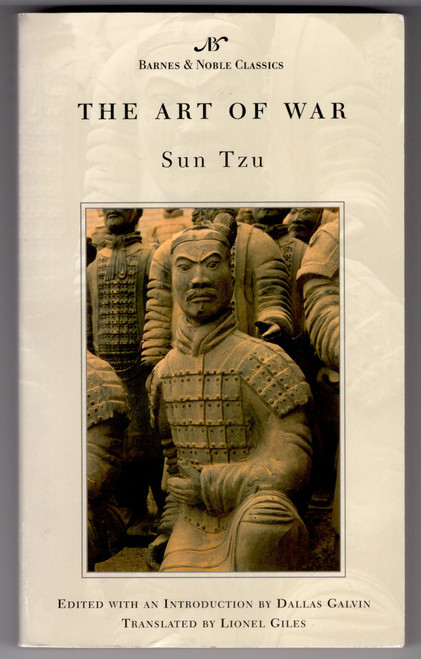Written in China more than 2,000 years ago, Sun Tzu's classic The Art of War is the first known attempt to formulate a rational basis for the planing and conduct of military operations. These essays have never been surpassed in comprehensiveness and depth of understanding, and might well be termed the concentrated essence of wisdom on the conduct of war. Terse and aphoristic, they contain principles still relevant today.
For many years there has been no satisfactory rendering into English of this unique classic. Samuel Griffith's accurate translation, relevant to modern conditions, and accompanied by selections from the many commentaries in the Chinese language, is particularly welcome. The text is accompanied by useful notes, appendices and bibliography. In addition, Griffith provides an excellent introduction, which covers the historical, biographical and philosophical background of The Art of War.
Sun Tzu begins with the premise that war is of paramount importance to the survival of the state. All aspects of war, therefore, must be studied and thoroughly understood. (His concern is not only the battlefield; he is actually aware of war's economic and political aspects as well.) Waging war successfully requires a firm grasp of the human, physical, and organizational factors involved. The wise leader understands and controls the constantly shifting interaction of all three to achieve victory.
Above all, the wise leader follows a moral path, the tao (or right way). In Sun Tzu's eyes, the aim of war is victory over, not annihilation of, the enemy. As Samuel Griffith observes in the introduction, "the primary target is the mind of the opposing commander; the victorious situation, a product of his creative imagination."
The precepts outlined by Sun Tzu can be applied outside the realm of military theory. It is, for example, read avidly by Japanese businessmen. Remarkable for its clear organization, lucid prose, and the acuity of its intellectual and moral insights, Sun Tzu's classic remains as relevant today as it was 2300 years ago.
Translated and with an Introduction by Samuel B. Griffith. With a Foreword by B.H. Liddell Hart
About the Author
Sun Tzu (544-496 BC) was a Chinese military general, strategist and philosopher who lived in the Spring and Autumn Period of ancient China. The name he is best known by is actually an honorific which means "Master Sun." He is traditionally credited as the author of The Art of War, an extremely influential ancient Chinese book on military strategy.







